Jonny Logan: Derry feis medal ‘is a huge thing to me’
and live on Freeview channel 276
Derry Feis records reveal that as a senior competitor he won the Male Tenor Solo competition in 1942 aged just 18. The young Derry man was also a regular competitor at many other feiseanna and also won hotly contested Boys’ Vocal Solo competitions at Feis Inis Eoghain in 1936 and again in 1937 as a teenager.
All of his feis medals, particularly his Feis Doire Colmcille prize, remained highly significant to Charlie throughout his life until he passed away in the early ‘90s. They also continue to play a very poignant part in the life of one of his children in particular.
Advertisement
Hide AdAdvertisement
Hide AdHaving chosen to make singing his profession Charlie Sherrard adopted the stage name Patrick O’Hagan and began an illustrious recording and touring career focused largely on a catalogue of Irish songs. From the late 1950s until the mid-1960s ‘Patrick O’Hagan Sings’ was one of the most popular shows on Australian television. He also performed for three different Presidents of the United States at the White House.
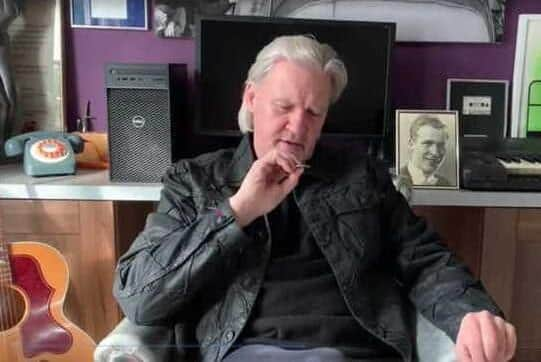

In May, 1954 while on a tour of Australia, one of Patrick’s sons was born at Frankston, near Melbourne. He was named Sean Patrick Michael Sherrard and the family moved back to Ireland when Sean was just three-years-old.
As the years passed by, it became obvious that musical talent had also passed to Sean. By the age of 13 he had learned guitar and began writing his own songs. After leaving school he gained an apprenticeship as an electrician but continued to perform in pubs and cabaret shows. His initial claim to fame came in 1977 when he landed the lead role of ‘Adam’ in the Irish musical ‘Adam and Eve’ and then the role of Joseph in ‘Joseph and the Amazing Technicolour Dreamcoat’.
As his recognition grew, Sean Sherrard adopted the stage name Jonny Logan inspired by the main character in the film ‘Johnny Guitar’. He released his first single in 1978.
Advertisement
Hide AdAdvertisement
Hide AdJonny Logan is, of course, best known for his record breaking association with the Eurovision Song Contest. His bid to represent Ireland began in 1979 when he entered the Irish National Song Contest in which he came third. Undaunted, he entered again in 1980 with the Shay Healy song ‘What’s Another Year’ and famously won. In 1984 he wrote the song ‘Terminal 3’ which was sung by Linda Martin at Eurovision and Ireland finished in second place. In 1987, his self-penned song ‘Hold Me Now’ won the competition again. His hat-trick of victories was completed in 1992 when his song ‘Why Me’, again sung by Linda Martin, won at the finals in Sweden.
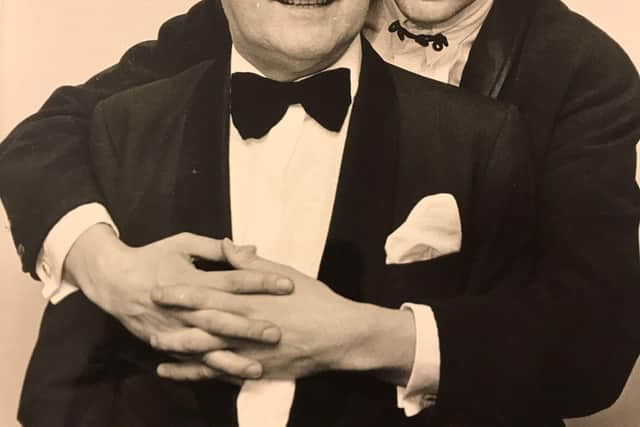

Speaking about his father, Jonny said: “My older brother has the 1936 medal and I have the 1937 one. My mother gave them to us and I never go on stage without it. I never sing without it, not since dad died. It’s nearly 30 years ago but sometimes it seems like yesterday.
“My dad’s father was a coffin maker and my dad had a piano accompanist called Hal Steadman who toured with him. I remember my dad telling me that he brought Hal to the house in William Street to sleep overnight. No one told Hal that my granddad made coffins. In those days there were outside toilets so sometime during the night he had to go out to use the toilet and there was a coffin and he almost hit the roof.
“My father was very proud of his northern Irish roots and we were all brought up knowing that. I know he had a very strict upbringing. His mother was a very strict woman. I got to know granny - not all that well - I was 14 or 15 when she passed away. She came and stayed with us for a while in Drogheda when we had a pub there. I think dad bought the pub because his parents also ran a pub in Derry. That was the sort of experience he’d had, but unfortunately he had rheumatoid arthritis so he couldn’t work it in the way he’d hoped. He roped us all into working in it – some of us did and some of us didn’t want to. It’s a part of our lives that some of us look back on lovingly and some of look at as a nightmare. I fall into the latter category. I just didn’t enjoy living above a pub,” Jonny said.
Advertisement
Hide AdAdvertisement
Hide AdJonny also recalled that he visited Derry as a child and that on one of these trips, was the first time he encountered his granny Sherrard.
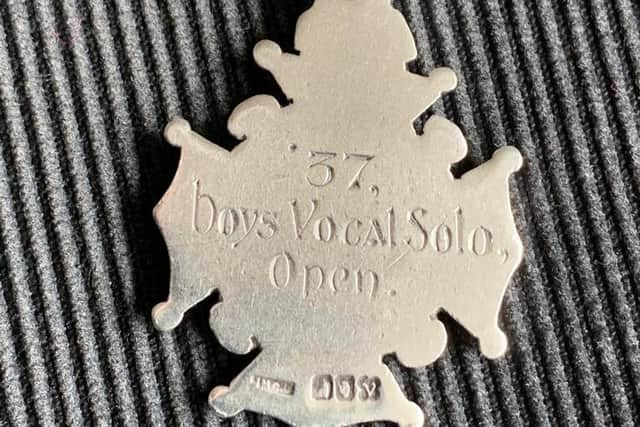

He continued: “Dad took me when I was very young, about 13 or 14, up to Derry to meet his singing teacher. I wasn’t singing as such then. He’d only heard me singing once in the pub at a Christmas party. I sang something like ‘Edelweiss’ from ‘The Sound of Music’ acapella. His teacher started crying when she heard my voice. She said I sounded exactly like my dad when he was that age. I think my father was quite shocked by the whole thing.
“I also remember he took us up to meet my grandmother. I was born in Australia, my brothers were born in London and my sister was born in Scotland. We were all tour babies and we hadn’t met my grandmother. So, he took us up and we were in jeans and my grandmother wouldn’t let us in the house because we were in jeans. She was that kind of woman. So my father had to take us to a shop in Derry and get us short trousers before she’d let us cross the doorway.
“When we had the pub in Drogheda, banging came from her bedroom like she was driving six-inch nails into the wall to hang her holy pictures on. Looking back I’m sure my mother wasn’t that pleased,” Johnny said.
Advertisement
Hide AdAdvertisement
Hide AdHowever, Jonny Logan’s connection to his father’s feis medal is much more than an act of commemoration. Instead, it is something which he believes was central to saving his singing voice.
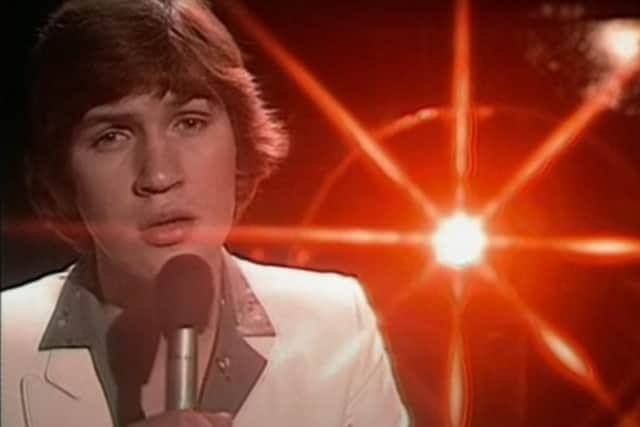

“It’s really important to me that my father’s association with the feis is kept alive because those medals were passed down. I had a problem – I wouldn’t be deeply religious, but after my dad died in 1993, for whatever reason I developed a psychological problem with singing. I just couldn’t sing the way I used to be able to sing.
“My mother gave me the medal, I put the medal on and from the day I put it on until today I have had no problems with singing.
!I always touch the medal before I sing and just ask dad to sit with me. It’s always worked. I don’t feel like I’m alone going on stage. This medal is a huge thing to me.
Advertisement
Hide AdAdvertisement
Hide Ad“I held my father on a pedestal, I kind of adored the man. I think losing him psychologically damaged me. I lost my voice and it was only when I put the medal on that I felt that I had him back. So, I had something physical that belonged to him that he cared about, that I could touch. It was important to him and so then I could have that as being important to me. My father would have been 98 this year. He died when he was 69 and I am still holding the same medal.
“It’s amazing. I’ve always said this to people when they lose someone close, to keep something directly associated with that person because it’s a physical contact rather than an ethereal one or a spiritual one with the person that you lost.
“I am at point now where I am 67-years-old and I wear this every time I sing and most of the people who know me including my band, they all know the story behind the medal. That’s why it’s something I’m very proud of and it’s something that gave me an awful lot of comfort. And as such, I am trying to share that knowledge with people since I’ve felt this connection with the medal itself. I really do believe in things like this.
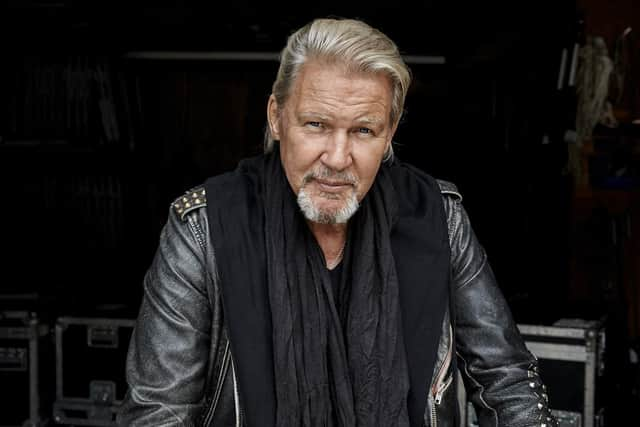

“I remember going to Norway and seeing there for the first time and I felt some kind of connection with the country and maybe it’s something to do with the shared history. I was really comfortable there instantly. There’s other countries you go to and you have to adapt. I think that as Irish people, that spiritual connection with anything is very important to us.”
Advertisement
Hide AdAdvertisement
Hide AdJonny Logan added that he feels great pride in the fact that his father, amongst many others, hails from a great Derry musical lineage.
He said: “My father was always very, very proud of Derry. I was brought up to feel like that and to feel that my connection with the north of Ireland was something that I had to be very proud of. That was bred into us as children. I still feel like that wherever I go. I mean I was born in Australia but I believe in the old adage ‘just because you’re born in a stable it doesn’t make you a horse’. My father came from Derry, my mother came from Kilkenny.”
“It’s difficult trying to tell people today the meaning of this. Events like this were the breeding ground for great singers and for great musicians. These were the things before we had television and mass media.
“People tell me now how Eurovision is full of backing tracks these days. I say, but you don’t realise what that meant in 1980 to win. It was such a big thing. To get outside the country and to be seen outside the country. The acknowledgement that you were good was a confidence builder – the same as it was in the feis.
Advertisement
Hide AdAdvertisement
Hide Ad“It opened doors because it was watched. People who controlled the music industry in the very early days were all part of the feis movement and were looking for talent. If you want to find the apple then you should go to the orchard.
“Louis Walsh looked after me and has been my friend for most of his life but he was educated in music. He knew what he was talking about because music wasn’t just a passion for him, it was something that he’d studied and understood.
“I think now, certainly with the introduction of streaming and boy bands and shows like The Voice and X Factor, that fame has become more important than your ability to perform. Certainly when I was growing up, the people that I looked at were people that I wanted to emulate. It wasn’t about the fame, I just wanted to be as good as them. To be the best that I could be. And, I feel sorry for a lot of the people today because I think that instant fame has its rewards, but people have mixed things up - being seen on television with being a good singer or a good musician. They are not necessarily the same thing.
“I’ve never actually seen those shows. I have been a guest on Holland’s version of one of these shows and I was almost thrown off it. I turned up to sing and the director wanted me to sing ‘Hold Me Now’, but on the day of recording he wanted me to cut the song to two minutes. I won’t repeat what I said to him and he got really upset. He said ‘people won’t watch T.V. after two minutes – they’ll have had enough of you after two minutes.
Advertisement
Hide AdAdvertisement
Hide Ad“I wouldn’t change and told him he’d obviously picked the wrong artist. He said ‘I obviously did’, but he couldn’t get rid of me because the contracts had been signed. The only thing he could do out of spite was tell me to sing ‘What’s Another Year’. So I did, but at the end of it when the high note came, I jumped another octave up and the judges threw their arms in the air and said they’d never seen anything like it. Afterwards he had to come and admit that the figures had actually gone up while I was singing the song. But, that’s what you’re dealing with now.
“If you look at the size of Northern Ireland and look at everyone from Phil Coulter to Josef Locke to my dad, to Van Morrison to Gary Moore right through to The Undertones, Northern Ireland has been a breeding ground for talent throughout the ages.
“That history didn’t arrive from nowhere because that’s one of the things about history – if we forget who we were, we forget who we are. And, I think that’s still evident today from things like the feis.
“We are still talking about it now one hundred years later. Will we be talking about The Voice in another hundred years? I don’t think so,” he said.
